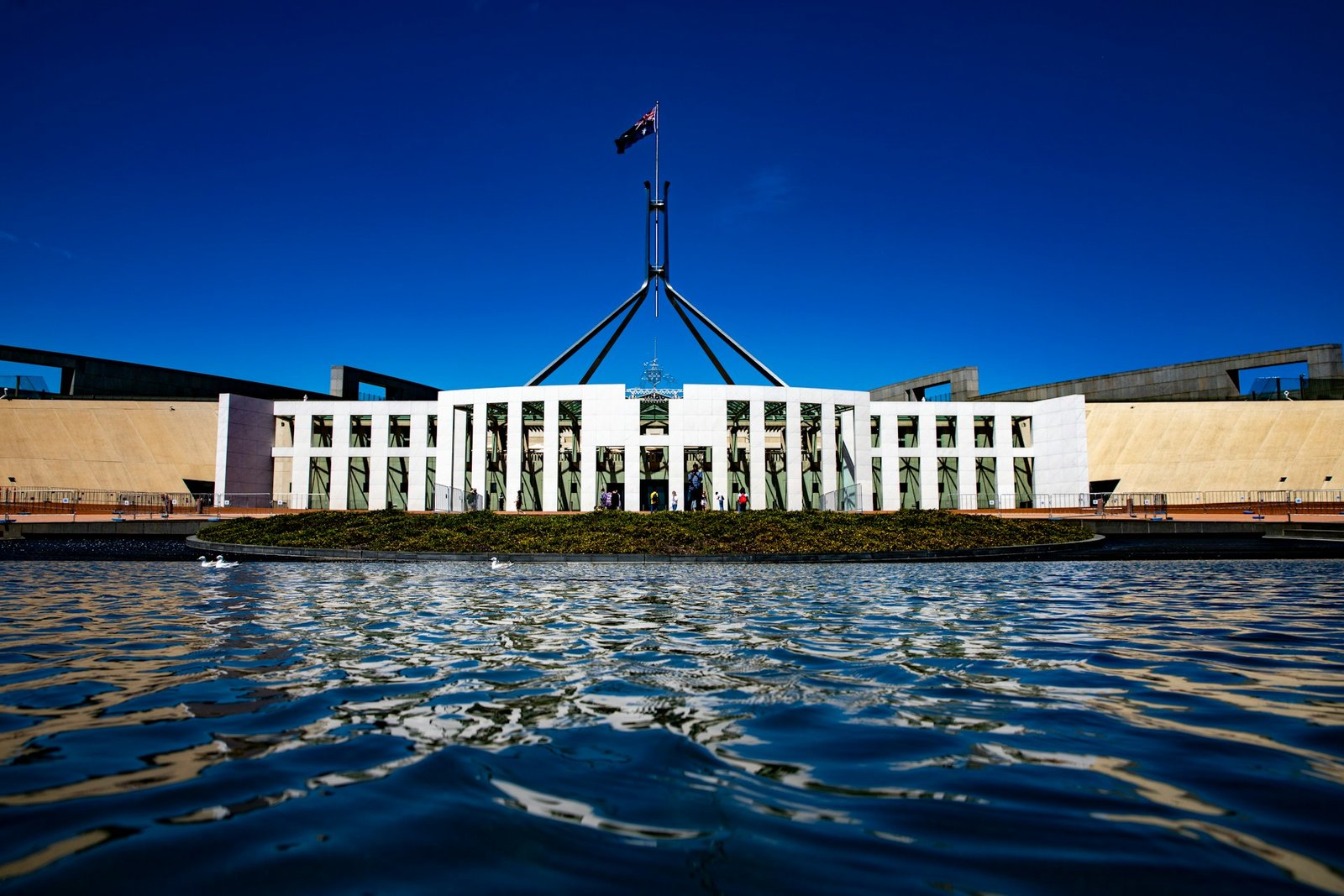Introduction
The incorporation of international treaties into Australia’s domestic law is piecemeal, at the whim of the Commonwealth Parliament. This leaves Australians vulnerable to human rights violations. It is held that the present approach to international human rights, specifically Economic, Social, and Cultural (ESC) rights, is detrimental to Australia’s progressive full realisation of the rights.
This blog considers the International Covenant on Economic, Social and Cultural Rights’ (ICESCR) place in Australia, and the legislative and judicial approach to international rights and the effectiveness of Australia’s human rights framework is evaluated in the context of three rights: Indigenous, social security and housing rights.
ICESRC and Australia: Compliance, Problems and the Future
While human rights are meant to be indivisible, it is argued that ESC rights have fallen to the wayside, subordinate to the International Covenant on Civil and Political Rights (ICCPR). Leckie, 1998, p. 82, contends that no other human rights treaty is treated as negligently as the ICESCR. Not because of a limitation of law or jurisprudence, but rather problems of perception and resolve have left ESC rights “wallowing in the relative purgatory of global efforts to secure human rights.”
ESC rights are rights where enforcement has an economic impact, an impact that may discourage implementation. At the same time, this can be contrasted with ICCPR rights, where the economic consequences may be considered more limited, leading to the rights being more likely incorporated into domestic law.
Has Australia put economics first? Under the ICESCR, Article 2(1), Australia is obliged to the maximum of its resources to realise the rights recognised in the Covenant progressively. Such a commitment must extend beyond ratification to incorporation into domestic law. This leaves the question: has Australia met its obligations? To answer this question, one must look domestically at how the rights are respected (or not), beginning with examining the jurisdictional framework.
Bill of Rights
Australia lacks a Bill of Rights constitutionally or in statute, placing the country at odds with the other common law countries. In 2024, the Parliamentary Joint Committee on Human Rights again considered a Human Rights Act. The Committee included an illustrative Human Rights Bill in its report that would bind Commonwealth public authorities and other entities exercising Commonwealth functions.’ The Committee’s report and model Human Rights Bill provide an opportunity for the government of the day to take a positive step towards addressing Australia’s patchwork quilt approach to human rights and bringing Australia into line with the world’s democratic countries. It, however, remains to be seen if this opportunity will be taken up.
Legislation: The Piecemeal Approach to Human Rights
Lacking a Bill of Rights, implementing human rights, particularly ESC rights, falls on the Constitution, federal and state legislation, and common law. However, unlike the ICCPR, Australia has adopted an indirect approach to implementing ECR rights, which limits the judiciary’s power to enforce them. Incorporating the rights into domestic law only where existing domestic laws are inadequate.
While Australia has ratified 12 international treaties, implementing them in domestic law is less substantive, limiting their legal standing and the opportunity to realise their rights fully. This is shown at the Commonwealth level, where seven acts give effect to or engage human rights in international treaties, highlighting limited accessibility and understanding of their rights by the common person.
The treatment of ECR rights can also be contrasted with the ICCPR at the federal and state levels. Federally, the Australian Human Rights Commission Act 1986 (Cth) incorporates the ICCPR (sch 2), yet is silent on the ICESCR. In contrast, the states of Queensland, Victoria, and the Australian Capital Territory (ACT) have legislated human ECR rights laws, with varying degrees of enactment. While the States’ incorporation of ESC rights is less than ideal, they are a step up from the Commonwealth’s efforts. However, Australia’s legislative approach to economic, social, and cultural issues lacks justiciability.
This leaves us with the question: Does the Australian Constitution fill the gap?
Constitution: Reflecting 1901 Values?
Debeljak, 2013, para 3.60 argues that in drafting the Constitution, the drafters “settled on the Westminster model with its reliance upon the rule of law, the Diceyan doctrine of parliamentary sovereignty, and responsible government.”
The Constitution does not talk directly to human rights in any substantive manner. However, it expressly guarantees one ESR right, the right to just terms if the Commonwealth compulsorily acquires property. The Constitution also explicitly guarantees ICCPR rights: the right to vote, the right to trial by jury when indicted, freedom from discrimination based on one’s state of residence and the freedom of religion. It also embodies a respect for the rule of law, which is a fundamental precondition for human rights; human rights cannot exist in a society without the rule of law.
As shown, statutes and the Constitution have fallen short of the ideal. Can the Australian High Court fill the gap?
The High Court: Friend or Foe of International Human Rights
While defending the High Court and its approach to human rights, Williams concedes that it is frequently at pains to make it clear that human rights considerations have played no part in its reasoning. In a case analysis of Maloney v The Queen (‘Maloney’) (2013)252 CLR 168, Wall, 2013, p 1 expressed it more strongly, concluding ‘that the majority of the members of the Court have adopted an approach to the interpretation of international law that is unjustifiably narrow’. The Parliamentary Joint Committee on Human Rights also noted that in its view, the High Court in Maloney “adopt[ed] several conclusions which are arguably not in conformity with the current state of international law and practice relating to special measures.” The Court, in various ways, as in Malony, has overlooked customary international law’s role and, to varying degrees, sought to reduce or eliminate the relevance of extrinsic international materials.
Historically, the Court has held that ratifying an international covenant as an executive action has no direct legal effect on domestic law. In contrast, a convention ratified but not incorporated into domestic law should prevail as a matter of statutory construction where a statute or subordinate legislation is ambiguous.
In Mabo v Queensland (No 2) (1992) 175 CLR, 42 Brennan J observed that international law is a legitimate and important influence on the development of common law, especially when international law declares the existence of universal human rights. Recently, Kirby J has argued for a greater regard for the role of international law of human rights when interpreting provisions of the Constitution. Whilst this softens Kirby J’s position, there is no indication that the Court is moving in this direction.
The Court in Maloney, it may be argued, has stepped back from these earlier decisions. Only time will tell what this means for the place of international law in Australia’s human rights framework. The above notwithstanding, where domestic law enacts international law, such as in the Racial Discrimination Act 1975 (Cth), the High Court is comfortable with engaging with international law to assist in statutory interpretation.
The International Covenant on Economic, Social and Cultural Rights
The question remains: Is Australia complying with its obligation to progressively achieve the full realisation of rights recognised in the ICESCR? It is argued that Australia falls well short of its obligations, with multiple governments having shown a lack of respect for ESCR rights, leaving the most vulnerable members of Australian society with inadequate human rights protections.
Justiciability
First and foremost is the question of the justiciability of ESC rights. As discussed, Australia does not have a Bill of Rights, nor does the ICESCR appear in a schedule in the Australian Human Rights Commission Act 1986 (Cth), implying that such rights are unimportant. As discussed above, the outcome is that ESC rights are not justiciable in domestic courts.
Widening the Gap
The United Nations Committee on ESC Rights in 2000 expressed its “deep concern” at the comparative disadvantage of Australia’s Indigenous population. Twenty-three years later, the Committee remains concerned that Indigenous peoples … continue to experience how levels of disadvantage across all socioeconomic indicators.’ The 2024 report from the Australian Productivity Commission reports mixed progress on addressing the levels of disadvantage experienced by Indigenous Australians: Of the 15 socio-economic targets reported on, only five targets are on track, 10 targets are either showing some improvement but not on track, worsening or plateauing. The Australian government has agreed to intensify its efforts to improve outcomes, but after 23 years of failure, can Australia demonstrate that it is progressively realising Indigenous rights?
Adequate Housing
The ICESC rights states that the right to housing should be considered the right to live somewhere in security, peace and dignity. Yet, in Australia on census night 2021, 122,494 people did not have a place to live in security, peace and dignity, an increase of 5.2% over the previous five years.
The Australian government has attempted to address the provision of affordable housing over the medium term through its investment in the National Housing and Finance Investment Corporation (NHFIC) and its mechanisms: the Affordable Housing Bond Aggregator and the National Housing Infrastructure Facility. While this is a positive step, it remains a significant pressure for impoverished and low-income households.
The government also argues that it is investing significantly in addressing homelessness through rent assistance programs, emergency accommodation funding and its Reconnect program for young people who are homeless or at risk of homelessness. The Australian Bureau of Statistics (ABS) Census of Population and Housing is again due in 2026. Will it confirm that Australia is substantively maximising its resources to meet its obligations? Time will tell.
Conclusion
Australia’s approach to its obligations under the ICESCR has been and continues to be disjointed. An outcome underlined by the lack of justiciability, something which governments of all persuasions appear to be comfortable with, given the unwillingness shown over the last 17 or more years to implement a Bill of Rights or incorporate the ICESCR as a schedule in the Australian Human Rights Commission Act 1986 (Cth).
Whilst a lack of justiciability is a matter of concern, it does not hold back the implementation of ESC rights, which comes down to the issues of perception, resolve and financing. ESCR rights are costly to implement, but providing affordable housing, addressing homelessness, and tackling Indigenous inequality are three examples of where costs are up against political will. With affordable housing being a ‘political concern’ in 2025, there is movement in this space; however, other pressing areas of concern are neglected due to a lack of political will.
Australia should move forward on ESC rights by enacting a Bill of Rights that incorporates ESC rights, integrate ESC rights into policy making at all levels of government; provide adequate funding for social programs built around ESC rights such as adequate housing; enable the Australian Human Rights Council to monitor the implementation of ESC rights and finally to fund access to justice via such means as legal aid and associated support services.
Significant human rights organisations, including the Australian Human Rights Commission and the Human Rights Law Centre, have called for an Australian Human Rights Act. Politically, the Parliamentary Joint Committee on Human Rights has put forward a draft Bill as part of its 2024 report, and more recently, the Australian Greens Party Senator, David Shoebridge, has added his voice to a call for a human rights act. With the voices growing, the opportunity is there for the Australian government to move forward with its progressive agenda, addressing the need for a Bill of Rights, which includes ESC Rights.
What is proposed is a significant change, on where the political discourse in Australia must move from the ‘me’ to the ‘us’, back to the ‘lucky country’ where all Australians and non-Australians are on equal footing, where ESC rights are put first, before the ‘me’. Until this political discourse changes, it is unlikely that Australia will make substantive progress on ESC rights in the medium to long term.
Author
Andrew Priest is a 2nd-year law student in the Bachelor of Laws (Graduate Entry) program at ECU, Perth, Australia, with an interest in refugee, human rights, and First Nations law.





